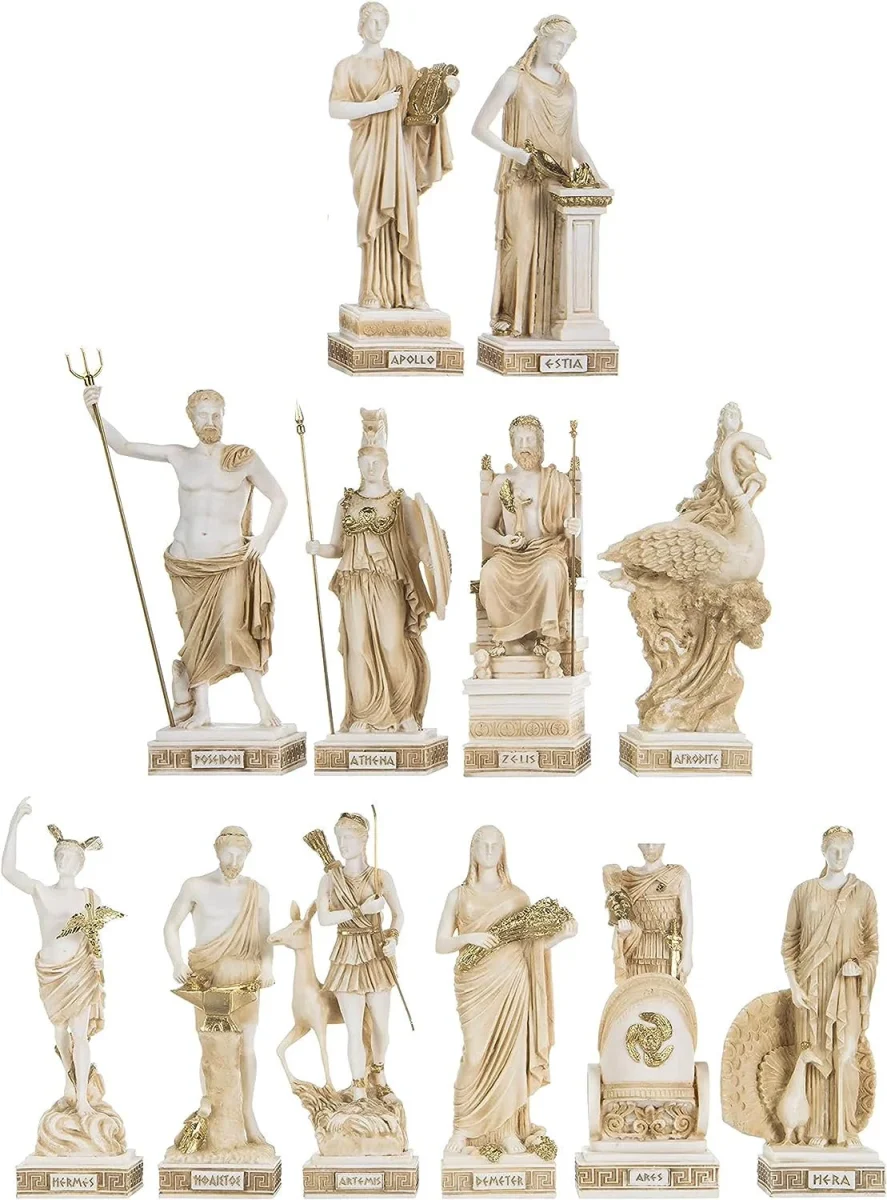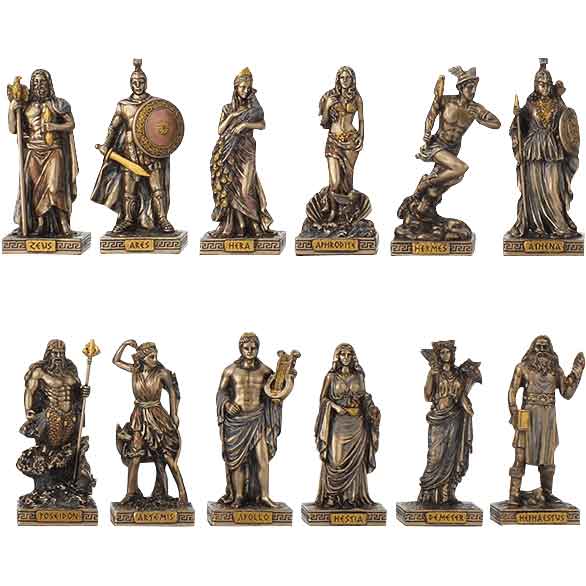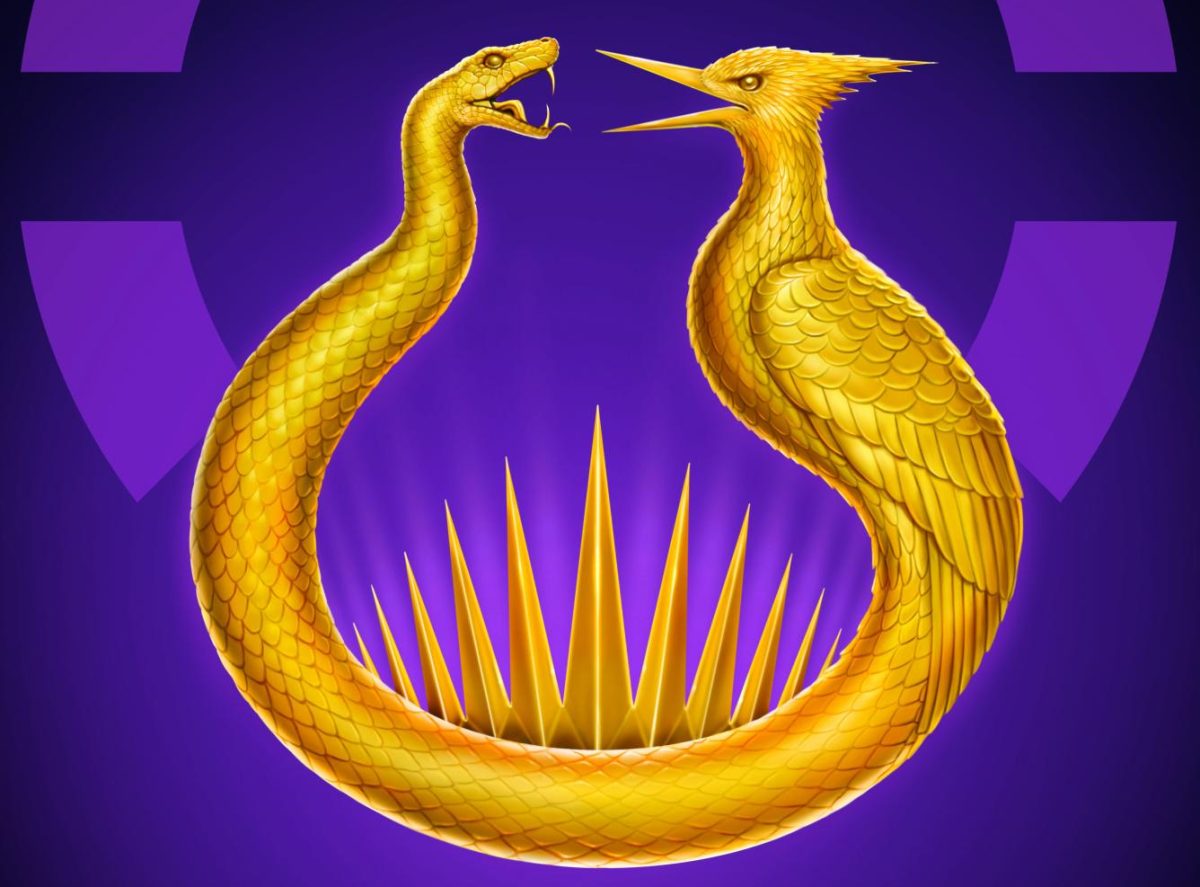Thanks for staying tuned and waiting for the second half of this publication. In the previous article, Aphrodite, Apollo, Ares, Artemis, Athena, and Demeter were covered in detail. The last six major Greek deities are featured here!
Dionysus
The god of wine, festivities, fertility, and the theater, Dionysus is most commonly pictured as a man with a cup of wine in his hand. He was also famous for being killed by Hera and then resurrected by the placing of his heart inside a mortal woman’s womb; he was afterward dubbed the Twice Born god because he was birthed twice. His first love was a young satyr boy named Ampelos. The story goes that they were picking fruit in a tree when Ampelos fell and died; Dionysus honored his memory by turning him into a grapevine, which he later learned to make wine from.
Hephaestus
Hephaestus is the god of the forge, fire, and metalworking. It is refuted that he is deformed and crippled, though myths disagree on how he became that way. Some stories say that he was born this way; they say that when Hera looked upon him when he was born, he was so ugly that she threw him from Mount Olympus (the home of the gods, not the waterpark). Other stories say that Hephaestus acquired his injuries from the fall down the mountain. Hephaestus was famous for being married to Aphrodite, goddess of love, and knowing that she was unfaithful to him. He is commonly pictured hammering metal at an anvil.
Hera
One of the most famous of the big twelve, Hera is known as the Queen of Gods; she is credited with being the goddess of marriage and the mother of Ares and Hephaestus. One of her most infamous qualities was her unending jealousy of the many lovers of Zeus, her husband. The story of Zeus and Hera’s marriage is as such: One day, there was a dreadful storm, and Hera was watching the clouds clear when a disheveled little cuckoo bird with a broken wing hopped up to her. She cradled it to her chest and cared for it, and if you’re at all familiar with Greek mythology, then it won’t surprise you that the little bird was Zeus, King of Gods. They fell in love and were married; Hera then gave birth to Ares, God of War.
Hermes
Known as the messenger god, the god of travel, and the patron god of thieves, Hermes is commonly pictured wearing a winged hat and pair of shoes and holding a caduceus (a staff with two serpents twined around it, which can be seen as the logo used by the United States Army Medical Corps). One of the most popular characteristics of this god is his cunning, as shown by the story of his birth. Not long after Hermes’ birth, the god became bored and snuck from his cradle. While wandering around, he came across the cattle of Apollo (the Sun God) and decided to take some back to his residence. Choosing some of the finest steer, Hermes corralled them so that they would walk backwards to the cave where he was born; when Apollo realized some of his cows were gone, he was puzzled to find that no tracks led away from where he’d had them, only towards that spot. Many amusing stories can be read about this mischievous god if researched further.
Poseidon
If you see a statue of a man with a trident, chances are that it’s Poseidon. Commonly pictured with a trident in hand and a thick beard, Poseidon is the god of the sea; he’s also Athena’s rival and the brother of Hades and Zeus. One interesting fact about the god of the sea is that he invented the horse. It would be considered strange because horses are land animals and he is a sea god, but there’s an answer in an aforementioned myth (with a slightly different account) as to why this is: When Athena and Poseidon were competing to be the patron of Athens, Athena created the olive tree while, in this version of the story, Poseidon created the horse. Though the Athenians found Athena’s gift superior, Poseidon became the creator of horses.
Zeus
Commonly pictured holding a lightning bolt with an eagle at his side, Zeus is probably the most famous god in Greek mythology. Infamous for his many conquests, Zeus frequently had affairs with gods and mortals alike; he was also well-known for the havoc he wreaked in the process.
The Greek pantheon has twelve major deities, but also hundreds of minor gods as well. Because the Greek’s definition of a god included any immortal being, anyone from nymphs to the Muses to Gaia could be considered a god. With hundreds of immortals to learn about, you could get a PhD in Greek mythology; alternately, if you have nothing to do you could spend the night researching the god Prophasis.






















